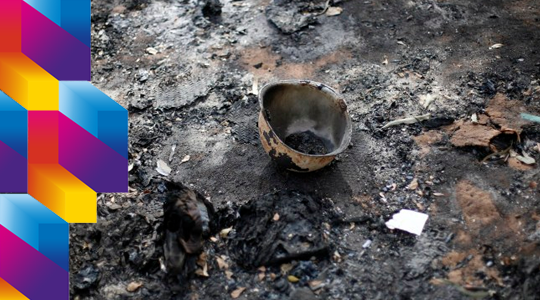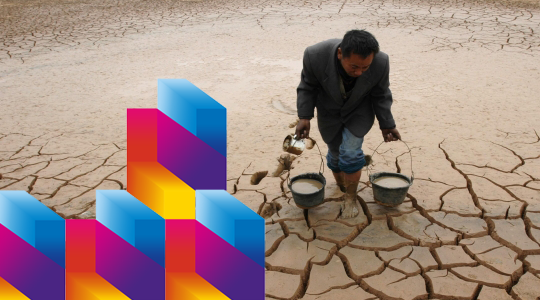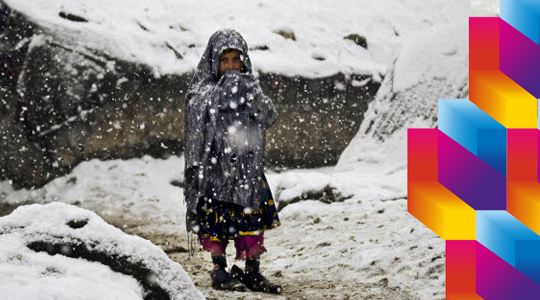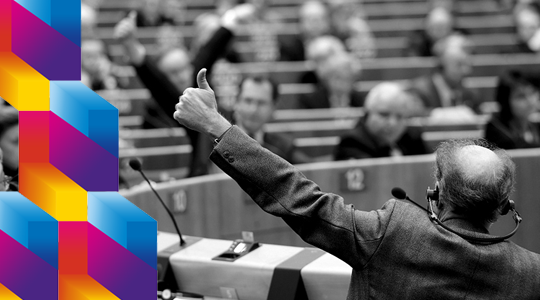BECOME A MEMBER
>JOIN
About the Parliamentarians Network

Founded in 2008 by the EastWest Institute (EWI) and several of the world’s renowned peacemakers, the Parliamentarians Network for Conflict Prevention mobilizes members in parliaments across the globe to encourage parliamentary engagement towards conflict prevention.
The Parliamentarians Network is run through the EWI’s Regional Security Initiative based at the EastWest Institute’s Brussels Center.

The Beginnings
The Parliamentarians Network for Conflict Prevention (PN) was formally conceived in the Declaration Making Conflict Prevention Real in December 2007, issued by the EastWest Institute’s (EWI) International Task Force on Preventive Diplomacy. This Task Force was established in May 2007 by EWI as the flagship of its Conflict Prevention Program. Composed of 24 outstanding experts and practitioners in the field of conflict prevention and resolution, the Task Force’s goal consisted of:
- Strengthening practical mechanisms to build political will to shorten time between early warning and effective early response to threats of violent conflict;
- Advocating for increased capacity building, mainstreaming and institutionalization of conflict prevention; and
- Fostering coherence of ideas and instruments.
In order to achieve this goal and its objectives as outlined in the Declaration, the Task Force called for “the establishment of an International Panel on Conflict Prevention and Human Security and a Parliamentarian Network for Conflict Prevention and Human Security, as practical advisory and advocacy mechanisms that will focus attention on key policy issues and help shorten the time between early warning and effective early response.”
In 2008, the Task Force and EWI undertook a large number of international consultations with parliamentarians, as well as with representatives from the UN, national governments, international and regional organizations, parliaments, and civil society on the establishment of a Parliamentarians Network. The Parliamentarians Network was officially launched at its inaugural meeting hosted at the European Parliament in Brussels on October 8, 2008.
Learn more about the Task Force members here.

First Five Years
Parliamentarians are often well-placed to identify key threats to stability and one of the first areas identified was the increased need for cooperation on shared water resources. This lead in 2009 to the adoption of the Amman Declaration on Regional Cooperation on Water and to a series of dialogues on water cooperation in Afghanistan, Pakistan, Iran and Southwest Asia as a region.
In an effort to bring together expert opinions and political will to lead the way in conflict prevention efforts, we convened the Global Conference on Preventive Action in December 2010. Together with our partners we organized a high-level debate over the course of two days, touching upon conceptual conflict prevention measures, as well as diving deep into the concrete examples of efforts undertaken in different regions across the globe. Several recommendations with concrete policy goals came out of this global conference, providing policy makers with hands-on recommendations.

Women, Peace and Security
The Global Conference on Preventive Action in December 2010 also featured a working group on Strengthening the Role of Women MPs in Stabilizing and Transforming Afghanistan as part of the work the Network is doing in the area of Women, Peace and Security. This work focuses on United Nations Security Council Resolution 1325 and related declarations which have paved the way for women to be included in peace negotiations and at the table of power in debates on security issues.
The women parliamentarians from Afghanistan and Pakistan in our Network and their determination to achieve a spot on the table of power are seen as the flagship for this work. As a result of this determination and following their commitment to a standing dialogue between their respective countries, two historic meetings have taken place under our auspices; we convened the first-ever delegation of Afghan women parliamentarians to Islamabad in 2011 and in April 2012 we convened the first ever official delegation of Pakistani women parliamentarians to visit Kabul. Our ongoing efforts to strengthen female parliamentarians and build their capacity to adequately deal with the challenges a country in transition faces has also resulted in a study visit to Brussels in October 2012 for Afghan parliamentarians. Two years of hard work bore fruits in this field as two-thirds of the delegation were made up of women.
From 2012 to 2015, we have partnered with Women’s Action for New Directions (WAND) to pursue the U.N. Security Council Resolution 1325 Women, Peace and Security agenda that recognizes:
- The disproportionate and unique impact of armed conflict on women;
- The under-valued and under-utilized contributions women make to conflict prevention and conflict resolution;
- The importance of women’s equal and full participation as active agents in peace and security.
We convened women legislators from the U.S., Afghanistan, Pakistan and North Africa—in Rabat, Ankara and Washington, D.C.—to facilitate cooperation and information exchange, skills training and empowerment. Shinkai Karokhail, member of the Afghan parliament, summed up her experience: “I can go back to Afghanistan knowing that I have women friends in the U.S. who care about what happens to the women in Afghanistan. I am not alone.”

Network Today
The Parliamentarians Network for Conflict Prevention today is proud to be a body made up of current and former members from regional, national and supranational parliaments, all of whom are trailblazers for Conflict Prevention measures. As membership is open to any parliamentarian fitting these criteria, the Network includes parliamentarians from across the political spectrum, progressive and conservative members, and spreads geographically from Bulgaria to Timor-Leste and from Nepal to Mozambique. We are always happy to receive applications for membership from across the globe from (former) parliamentarians ready to dedicate their efforts to increasing the effectiveness of Conflict Prevention from the very local initiatives, to joining global movements. For more information on how to become member, please visit our membership page.
Interested in learning more? Check our FAQ page or get in touch with us.

